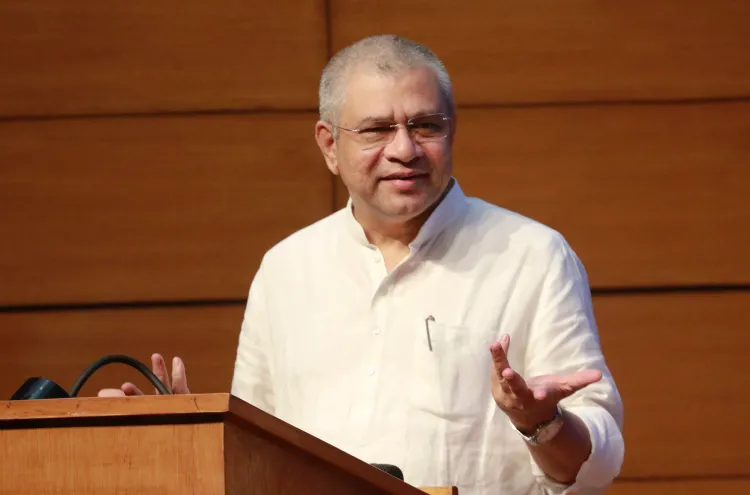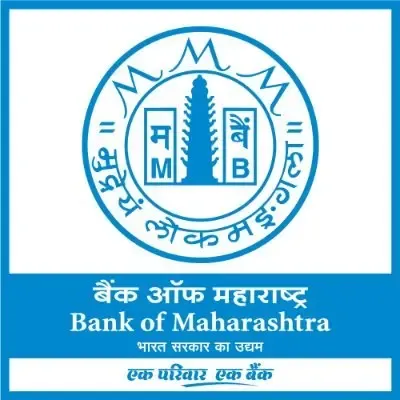Is Online Money Gaming More Dangerous Than Drugs? Ashwini Vaishnaw Warns of Rising Addiction

Synopsis
Key Takeaways
- Ashwini Vaishnaw warns about the dire impacts of online money gaming.
- The Online Gaming Bill, 2025 aims to regulate and protect users.
- Many families have suffered financially due to gaming addiction.
- Experts highlight links between gaming and criminal activities.
- The Bill promotes e-sports and social gaming for positive engagement.
New Delhi, Aug 20 (NationPress) Union Minister Ashwini Vaishnaw has described online money gaming as a threat more severe than drugs, cautioning that this addiction has already resulted in the loss of several young lives.
After the Lok Sabha approved the ‘Promotion and Regulation of Online Gaming Bill, 2025’, the minister stated that numerous middle-class households have seen their life savings disappear due to these platforms, leading to tragic outcomes.
During a media briefing, Vaishnaw outlined that the Bill consists of three segments: e-sports, online social gaming, and online money gaming.
“While the government will actively promote the first two categories with initiatives aimed at job creation and enhancing the creator economy, the third category has been flagged as extremely detrimental,” Vaishnaw noted.
“The World Health Organisation has recognized gaming disorder as a serious psychological issue. This Bill is intended to shield society from such catastrophic consequences,” he added.
The minister’s caution is supported by a series of troubling incidents reported nationwide.
In Mumbai, a young professional, Shweta (name changed), fell into the trap of online casino gaming after being influenced by social media advertisements.
A minor win of Rs 2 lakh against an initial investment of Rs 5,000 ensnared her deeper into the cycle of gambling, leading to significant losses that forced her into heavy borrowing. She ultimately attempted suicide and required several weeks of recovery in a hospital.
In Sultanpur, Uttar Pradesh, farmer Surya Pratap Singh has engaged in nearly 19,500 online games, often wagering thousands of rupees each day.
His addiction has resulted in the loss of peace of mind, family relationships, and financial security. On one occasion, he lost Rs 1.5 lakh in a single day, convinced that he would recover his losses.
In Kashmir, the circumstances are equally bleak. Noor Mohammad, a formerly respected shopkeeper in Bandipora, lost his home, savings, and livelihood to a betting game called Aviator.
In a viral video plea, he revealed that he lost close to Rs 1.5 crore, including funds from selling his house.
Other cases include a teacher who took loans under a colleague’s name and a college student who dropped out after losing Rs 70,000 borrowed from classmates.
Experts assert that the problem transcends personal financial devastation. A 2023 Parliamentary Committee cautioned that inadequate oversight has permitted gaming websites to be misused for terror financing.
Investigations by agencies like the NIA have established connections between laundered money from gaming platforms and extremist factions.
A 2022 report from the Financial Intelligence Unit estimated that money transactions through gaming platforms amounted to Rs 2,000 crore, a significant portion of which remains untaxed and untraceable.
In one notable case, the Enforcement Directorate confiscated Rs 17.82 crore in cash along with over Rs 22 crore in Bitcoin from an illegal betting site allegedly operated by Chinese nationals.
Cybersecurity professionals have raised alarms concerning risks associated with foreign-controlled applications, particularly Chinese platforms, which may be tied to surveillance networks and data exploitation.
The new Online Gaming Bill aims to confront this crisis by prohibiting online money games, advertisements promoting them, and any financial transactions associated with them.
Simultaneously, it acknowledges e-sports as a legitimate sport and pledges support for social games that foster education and culture.
Officials assert that this legislation is designed to protect families from financial hardship, safeguard youth against addiction, and enhance national security by curtailing the misuse of online gaming platforms.










